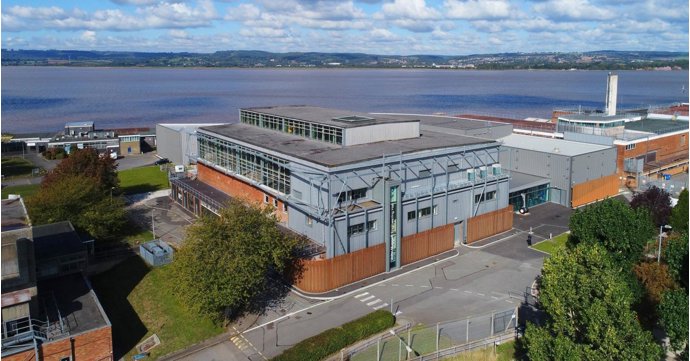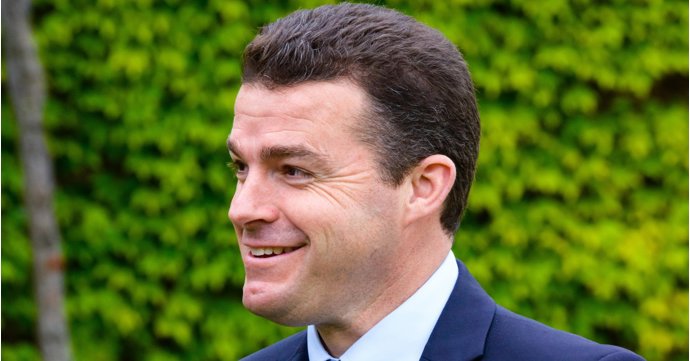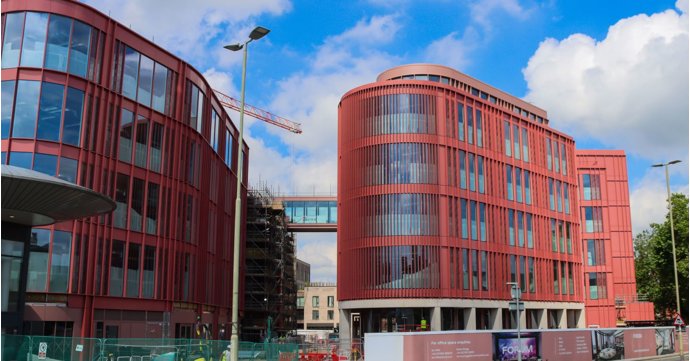When it comes to exciting projects using science and technology the more you look the more you see in Gloucestershire – from the educational with engineering at their heart to diamond making, from inspirational annual festivals to the environmental, medical, aeronautical and beyond.
Groundbreaking companies like Renishaw continue to redraw the boundaries, Cheltenham Science Festival fans the flames of interest of the next generation, local authorities are embracing new technologies, the Environment Agency is working hard to support our wildlife, agricultural revolutions are beginning and hydrogen and electric flight pioneered. And that's just some of it!
Growing a robot army
Muddy Machines, a member of Cirencester-based agri-tech incubator Farm491, recently secured £1.5 million in ‘seed funding’ to continue its quest to develop its autonomous robot designed for harvesting asparagus, known affectionately as Sprout. The cash will accelerate the development of the project and plans are afoot in 2023 to develop the machine’s capabilities and create a ‘small herd’ of the robots to work en masse on farms. Muddy Machines' vision is for that army to help tackle fixed labour to ensure a sustainable domestic food supply in developed countries and reducing food miles.
Changing the future of aerospace
From 20-seat regional trips to over 100-seat long-distance flights, Gloucestershire-based ZeroAvia is working hard to make scalable, sustainable aviation possible by replacing conventional engines with hydrogen-electric powertrains - with flights already taking place. From humble beginnings, the county firm is now working with partners including United Airlines, British Airways and Royal Schiphol Group to name a few, and is also backed by Microsoft founder Bill Gates. Orders of up to 500 engines have come in and it has raised tens of millions of dollars of funding to continue to turn the dream of a revolution to green flight into a reality.
Passing the net carbon zero test
This year Gloucestershire College was named as a 2030
Climate Action finalist in the prestigious Green Gown Awards, thanks in no
small part to its GC Zero project and commitment to driving decarbonisation in
education. That project, and a multi-million pound investment, has transformed the
college into a flagship for the UK and will deliver savings on its energy
bills worth more than half a million pounds a year. The college now runs on 100
per cent renewable energy thanks to a £5.5 million fit-out of solar panels and
ground source heat pumps. Over the next 25 years it expects to see carbon
reductions of 6.5 million kilograms - the equivalent of powering 4,637 homes
annually - reducing its carbon footprint by 63 per cent over the next year.
Breaking the land speed record
Bloodhound Education Ltd is an incredible educational charity, based at GSTP, Berkeley Green, providing hands-on science, technology, engineering and maths (STEM) activities for students aged seven upwards, as well as resources for teachers and parents. At the centre of it all is the awesome Bloodhound SLR, a Rolls Royce jet engine-propelled car built to break the land speed record of 763mph. Bloodhound’s owner, Ian Warhurst, is confident and under chief executive officer, Stuart Edmondson, it’s already achieved 628mph. Bloodhound Education inspires through engineering challenges, projects, and workshops, with a key focus on the green and sustainable technologies that might provide our future transport. Started in 2009, it has engaged with more than two million students.
Diamonds from the sky
Stroud-headquartered Ecotricity was pioneering the idea of ‘green energy’ before almost any other utility company. Back then its pitch was all about wind power, but the science and technology its owner, Dale Vince, has experimented with more recently has involved everything from manufacturing what it calls ‘sky diamonds’, man-made diamonds it claims are the eco-friendly ethical alternative to the real thing, to an £11 million investment in a green gas plant at Reading, producing enough gas to supply 4,000 homes. And it has also been revealed that it was using the C02 bi-product from making sky diamonds to push the beer through the pumps at the bars at Forest Green Rovers Football Club.
A festival of science and technology
Cheltenham Science Festival continues to raise the profile
of science and technology – lighting the spark of interest in the very youngest
to spreading the word on the some of the most interesting and exciting
individuals, breakthroughs, and developments in the UK and world-wide. In
particular it prides itself on its drive to encourage children and young people
to explore and question the world around them. Few ‘projects’ do more to fan
the flames of interest around science and technology. Professor Brian Cox calls
himself a ‘big fan… because it is supported by pretty much everyone who cares
about promoting science in Britain’.
A hotbed of science and technology
Gloucestershire Science and Technology Park (GSTP) is itself an innovative project which groups together organisations that centre around science and technology, allowing them to foster strong relationships and help drive business. It is home to the University of Gloucestershire’s C11 Cyber Security and Digital Innovation Centre, SGS Berkeley GREEN – South Gloucestershire and Stroud College’s university technical college. Both of which are dedicated to providing a world-class pipeline of talent through a focus on research, knowledge exchange and training across all age groups and abilities .
Investing in science and tech to cut energy bills
Stroud District Council was awarded a government grant of £1.8million to improve the energy efficiency of 187 council homes. The council has been bold in its promise to slash its carbon footprint, deciding to invest millions to improve insulation and install low carbon heating systems in some of its houses. Covering external wall insulation, cavity wall insulation, loft insulation and window replacements may not sound exciting, but the council believes the technology will cut tenants’ energy bills and carbon emissions, boost the green economy and improve the health and wellbeing of tenants. Not a bad payback.
Harvesting the power of solar
In August 2022 the ever-popular Cotswold Farm Park announced it would also be harvesting the power of the sun to help it fend off higher energy prices. Installation of solar panels, by Gloucestershire firm Mypower, is expected to help cut energy bills by up to 600 per cent. It’s not the only company going big on solar power in Gloucestershire, but it’s profile highlights an increasing number looking hard at alternatives and putting their faith in science and technology to provide the solutions.
Restoring the endangered elvers of the Severn and Avon rivers
The Environment Agency has been working on projects to help regenerate the once abundant population of elvers in the Severn and Avon rivers. Anyone passing Abbey Mill in Tewkesbury may have seen the work to install a special passage to allow the baby eels to pass safely with a similar system at or Stanchard Pit Weir. The rivers are migratory routes for the European eel, which is a protected species. The project will make a 26.7km reach of the River Avon and its tributary Carrant Brook accessible to the critically endangered European eel. The number of juvenile eels returning to rivers has fallen by around 95 per cent in the last 30 years.
The 'magic' ingredient that would make electric vehicles greener
When it comes to science and tech projects, all involving the benefits of the product it has built its business on - the carbon-based material graphene, Versarien has no shortage of possible inclusions for this article. We focus on how the business argues graphene can benefit the fast-emerging electric car market. Tyre wear accounts for 50 per cent of all air particular emissions from road transport, worse for the heavier electric vehicles, but a dose of graphene in the tyres can significantly reduce wear and tear and the issue of particle pollution. It can also protect bodywork against corrosion, make batteries last longer, strengthen bodywork, and even help generate electricity as well as help provide textile sensors to improve comfort.
When science and engineering reach an art form
Last but of course by no means least, Renishaw is an engineering firm which continues to push the boundaries of what it does using science and technology to help its customers change the world for the better. From its early ground-breaking measuring devices to more recent work producing magnetic encoders to make possible a self-balancing two-wheeled robotic vehicle to showing how its innovative drug delivery system can be used in the treatment for Parkinson's disease, to making complex reconstructive facial surgery to orthopaedic and trauma surgery possible using its 3D printing prowess, this firm and its projects are simply ground-breaking.



















